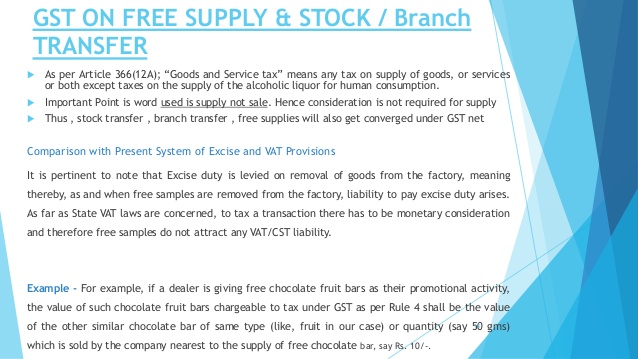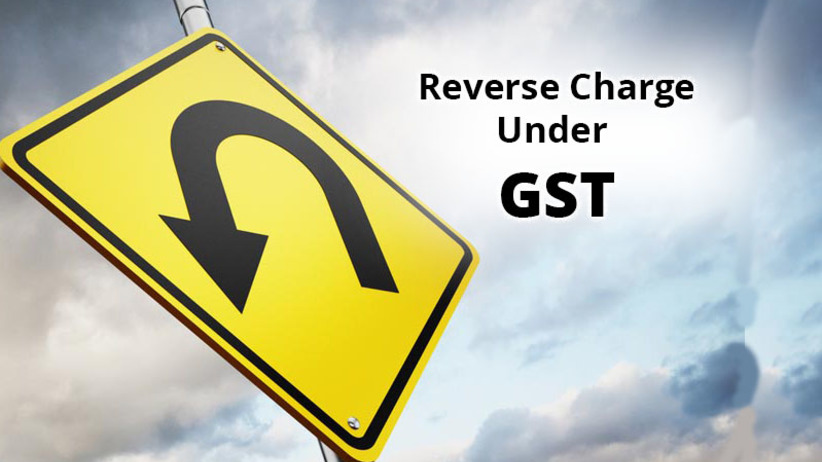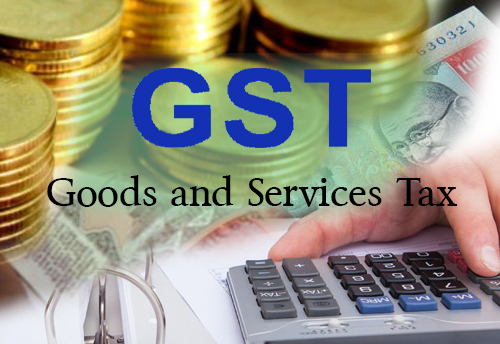Appeal, Review and Revision under GST -(Goods and Service Tax Act)

Appeal, Review and Revision under GST-(Goods and Service Tax)
Following our quick walk throughs on everything related to Goods and Services Tax (GST), we hereby continue to provide a handy guide on Appeal, Review and Revision under GST -(Goods and Service Tax Act).
APPEALS

In general parlance an Appeal means ‘making a request’ and in legal parlance an Appeal means ‘requesting the higher authority or court for reversal of the decision of a lower authority or court.’
There are four levels for making appeals:
- First Appellate Authority
- Appellate Tribunal
- High Court
- Supreme Court
First Appellate Authority – Any aggrieved person may appeal to First Appellate Authority against the order passed by the Adjudicating Authority.
| Time period for filing appeals | Within 3 months from the date on which the order sought to be appealed against was communicated. |
| Extension of time period | Further 1 month if first appellate authority is satisfied that Appellant was prevented by sufficient cause from presenting appeal |
| Manner of Appeal | As prescribed under this Act |
| Amount required to be deposited before appeal | Amount of tax, interest, fine, fee or penalty arising from the impugned order.
An amount equal to 10 percent of the amount in dispute against which appeal was made. |
| Cases when higher percentage of deposit applies | In case of serious case i.e. cases involving tax liability not less than 25 crores and Commissioner of GST has an opinion and reasons in writing that they have a very good case against the tax payer, then not less than 50 percent of the disputed amount is required to be deposited. |
| Number of Adjournment | 3 adjournment to each party |
| Time period for disposing the appeal | 1 year from the date on which the appeal was filed, the period of stay by the order of court or tribunal shall be excluded while calculating the period of one year. |
- First Appellate Authority shall give an opportunity of being heard to the appellate and as it thinks fit, confirm, modify or annul the decision or order appealed against.
- First appellate authority may also allow additional grounds of appeal which were not specified in the appeal, if he is satisfied that the omission was not wilful and unreasonable.
- The order of First Appellate shall be in writing and shall be communicated to the appellant and the adjudicating authority.
- A copy of order shall also be sent to jurisdictional Commissioner of CGST or the authority designated by him in this behalf and jurisdictional Commissioner of SGST or the authority designated by him in this behalf.
Appellate Tribunal – Any person aggrieved by the order passed by First Appellate Authority may appeal to Appellate Tribunal against such order.
| Discretionary power to refuse to admit any appeal, if | Tax or input tax credit involved,
Difference in tax or input tax credit involved, Or amount of fine, fee or penalty involved Does not exceeds rupees 1 lakhs |
| Time period for filing an appeal | Within 3 months from the date on which the order sought to be appealed against was communicated. |
| Extension of time period | Further 1 month if Appellate Tribunal is satisfied that Appellant was prevented by sufficient cause from presenting appeal |
| Time period of filing Memorandum of Cross Objection | Within 45 days of receipt of the notice, extension of time period is allowed if Appellate Tribunal is satisfied that Appellant was prevented by sufficient cause from presenting it. |
| Manner of Appeal | As prescribed and shall accompany with prescribed fees. No fee required for filing Memorandum of Cross Objection. |
| Amount required to be deposited before appeal | Amount of tax, interest, fine, fee or penalty arising from the impugned order.
An amount equal to 10 percent of the amount in dispute against which appeal was made. |
| Cases when higher percentage of deposit applies | In case of serious case i.e. cases involving tax liability not less than 25 crores and Commissioner of GST has an opinion and reasons in writing that they have a very good case against the tax payer then not less than 50 percent of the disputed amount is required to be deposited. |
| Disposing of appeal by Appellate Tribunal | Confirming, modifying or annulling the order appealed against
Refer the case back to the First Appellate Authority, or Revisionary Authority or to the original Adjudicating Authority for a fresh adjudication or decision |
| Powers of Appellate Tribunal | Appellate Tribunal Shall vest with same power as are vested in a court under the Code of Civil Procedure, namely
1) Discovery and inspection 2) Enforcing the attendance of a person and examining him on oath, 3) Compelling the production of books of accounts and other documents, and 4) Issuing Commission |
| Number of Adjournment | 3 adjournment to each party |
| Time period for disposing the appeal | 1 year from the date on which the appeal was filed, the period of stay by the order of court or tribunal shall be excluded while calculating the period of one year. |
- Appellate Tribunal shall give an opportunity of being heard to the appellate and no order which has an effect of enhancing the assessment or reducing a refund or input tax credit or otherwise increasing the tax liability unless the Appellate Tribunal has given a notice to him of its intention to do so and provide him reasonable opportunity of being heard.
- Appellate tribunal may also allow additional grounds of appeal which were not specified in the appeal, if he is satisfied that the omission was not wilful and unreasonable.
- The order of Appellate Tribunal shall be in writing and shall be communicated to the appellant, First Appellate Authority and the adjudicating authority.
- A copy of order shall also be sent to jurisdictional Commissioner of CGST or the authority designated by him in this behalf and jurisdictional Commissioner of SGST or the authority designated by him in this behalf.
High Court – Any person aggrieved by the order passed by Appellate Tribunal may appeal to the High Court against such order and High Court may admit such appeal if it is satisfied that the case involve substantial question of law.
| In following cases no appeal can be filed in High Court | 1) A matter where two or more States, or a State and Center, have different views regarding the treatment of a transaction(s) being intra-State or inter-State, or
2) A matter where two or more States, or a State and Center, have different views regarding place of supply. |
| High Court may determine any issue, if | 1) It has not been determined by the Appellate Tribunal
2) It has been wrongly determined by the Appellate Tribunal and such case involves a question of law. |
| Time period for filing an appeal | Within 180 days from the date on which the order sought to be appealed against was communicated.
High may admit an appeal after the expiration of 180 if satisfied that Appellant was prevented by sufficient cause from presenting appeal. |
| Manner of Appeal | As prescribed and shall accompany with prescribed fees.
Form of Memorandum of Appeal shall precisely state the substantial question of law involved. |
| Disposing of appeal by High Court | Heard by a bench of not less than 2 judges of High Court, and shall be decided on the basis of their opinion. Where there is no such majority the judges shall state the point of law to other one or more judges of High Court and accordingly on the basis of opinion of majority the case shall be disposed. |
| Powers of High Court | High Court shall vest with same power as are vested in a court under the Code of Civil Procedure, namely
1) Discovery and inspection 2) Enforcing the attendance of a person and examining him on oath, 3) Compelling the production of books of accounts and other documents, and 4) Issuing Commission |
High Court may also allow appeal on any other substantial question of law formulated by it, if satisfied that the case involve such question.
Supreme Court – An appeal shall lie to Supreme Court from:
- Any order passed by the High Court, on its own motion or an application by aggrieved party, or
- Any order passed by Appellate Tribunal in the matter relating to where two or more States, or a State and Center, have different views regarding the treatment of a transaction(s) being intra-State or inter-State, or where two or more States, or a State and Center, have different views regarding place of supply.
General Points Relating to Appeal
- The Board shall time to time recommend council the monetary limit for the purpose of filing application or appeal by GST officers under this Act.
- Any person who is entitled or required to appear before any GST officer or Court can Appoint an Authorised Representative on his behalf.
- While calculating the time period, a stay by any tribunal or court shall be excluded.
Revision by First Appellate Authority
On its own motion or information received, on examination of records consider that
- Decision or order passed by the Officer subordinate to him is erroneous, or
- prejudice to the interest of revenue.
No order of revision shall be passed after expiry of three years of passing that order.
Review under GST
No guidelines for review of an order under this Act has been prescribed yet.


 Sales Tax For E-Commerce: 3 Things Small Businesses Should Know
Sales Tax For E-Commerce: 3 Things Small Businesses Should Know  What Is The GST Liability on Free Supply of Goods and Services?
What Is The GST Liability on Free Supply of Goods and Services?  Some FAQs about GST- Understanding Scope and Provisions of GST
Some FAQs about GST- Understanding Scope and Provisions of GST  Understanding the Reverse Charge mechanism under GST and IGST?
Understanding the Reverse Charge mechanism under GST and IGST?  Pros and Cons of GST- Is Ushering in of GST worth Celebrating as media wants us to believe?
Pros and Cons of GST- Is Ushering in of GST worth Celebrating as media wants us to believe?  Arrests and Detention Provisions under GST in Detail- Are these justified
Arrests and Detention Provisions under GST in Detail- Are these justified  ITAT Amritsar: No Section 269SS Violation for One-Time Cash Payment Before Sub-Registrar
ITAT Amritsar: No Section 269SS Violation for One-Time Cash Payment Before Sub-Registrar  Tax Officials Unleash Digital Dragnet: How New Raid Powers Redefine Privacy, Property Rights in India and likely to Fuel Corruption
Tax Officials Unleash Digital Dragnet: How New Raid Powers Redefine Privacy, Property Rights in India and likely to Fuel Corruption  Income Tax Department Rewards for Reporting Tax Evasion: A Comprehensive Guide
Income Tax Department Rewards for Reporting Tax Evasion: A Comprehensive Guide  Forfeiture of Gratuity by Employer- What are the Remedies for an employee- Can employer be challenged?
Forfeiture of Gratuity by Employer- What are the Remedies for an employee- Can employer be challenged?